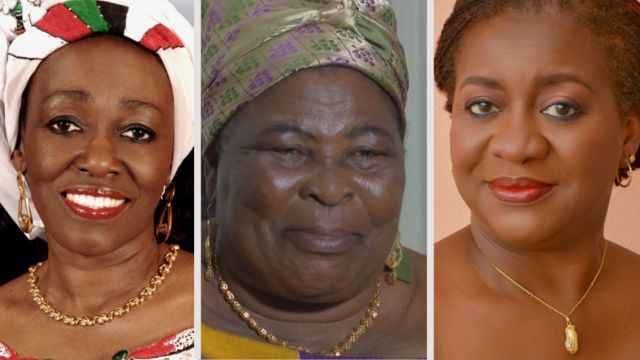Breaking the Glass Ceiling: Women Conquering Battles in Ghana’s 2020 Elections
In this blog, Ekow Tachie-Mensah, Communications Assistant at Education Sub Saharan Africa (ESSA) shares his opinion about women aspirants in Ghana's 2020 elections.

It was a cocktail of emotions that fateful Monday in July 2020, when I read the news. I had just settled in to feast on some Ghana jollof when I came across the news of Prof. Jane Naana Opoku-Agyemang’s nomination.
As a young African leader passionate about advancing gender equality, I was overwhelmed with joy. The flag bearer of Ghana’s biggest opposition party, former President John Dramani Mahama had selected his former Education Minister Prof. Jane Naana Opoku-Agyemang as his running mate for the 2020 general elections.
She becomes the first woman Vice-Presidential candidate of a major political party in Ghana. Long overdue, I must say. Not only was this groundbreaking, it was an inspiration for all young black girls who feel it’s impossible to reach higher heights in a male-dominated system.
It has been 25 years since the Fourth World Conference on Women in Beijing set a monumental agenda for advancing women’s rights. Even though a lot has been done to promote gender equality, we are still far from the finishing line. Globally, 21.4% of people who hold Member of Parliament positions are female. Contextually, there are only 36 female MPs in Ghana out of 275 MPs (12.75%).
These statistics in various sectors, especially the education sector are staggering. Prof. Opoku-Agyemang broke barriers and changed the status quo in 2008 when she became the first female Vice Chancellor of a public university of Ghana, University of Cape Coast (UCC). Sadly, women representation in leadership positions is still not encouraging as shown in ESSA’s study in Ghana, where we found only 8% of university Vice Chancellors in the country are female.
Everything about Ghana’s general elections this year has been novel. The first time an incumbent president was competing with a former president. In an unprecedented move, three women were successful in their bid to run as presidential candidates for their respective parties. Brigitte Dzogbenuku, Nana Konadu Agyemang Rawlings and Akua Donkor soared high as leaders. Despite having no formal education, Akua Donkor defied all odds to take the bold step in leading her party for the presidential ticket.
From the emergence of the COVID-19 pandemic to having the first female Vice President of the United States of America, 2020 has proven to be a year of change. Changing stereotypes, defying odds and transforming societies through innovations.
As we work assiduously to promote female leadership in various sectors including education, health and in government, let us keep in mind that development begins, and ends with women. As I cast my vote on 7th December 2020, I had in mind voting for the party that had placed a gender lens in their national policies as that was of interest to me. Whatever the election results will be, women are the overall winners in all.
Meanwhile somewhere in Accra, I just bought some Nigerian jollof (you’d probably have figured by now that I’m a foodie) and I look forward to sharing my food review. For the sake of my taste buds, and stomach of course, I do hope it goes on well. I’ll let you know in my next blog.